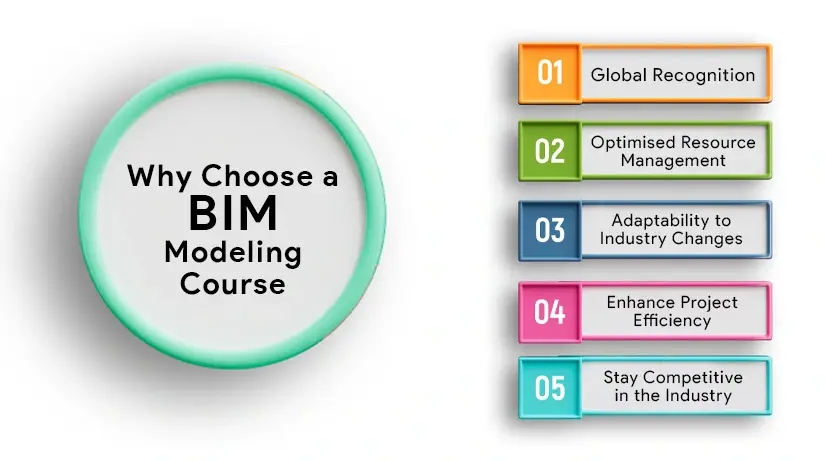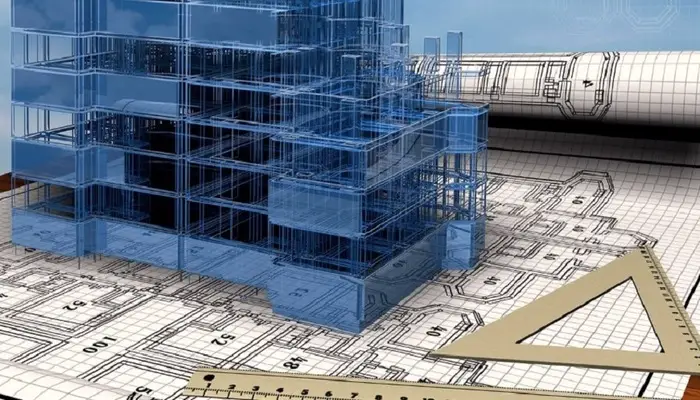Top 5 Civil Engineering Courses After Graduation (2026)

Table of Contents
What Is Civil Engineering?
A branch of engineering known as “Civil Engineering” is focused on developing, building and maintaining projects that are important for contemporary civilisation. It contains a wide range of activities and is essential in determining the constructed environment. The planning, design, supervision and maintenance of several building projects and infrastructure are the responsibility of civil engineers.
As a civil engineer, it's their responsibility to plan and construct infrastructure such as roads, bridges, airports, railways, tunnels, and ports, ensuring they are safe, efficient, and sustainable. They also design and construct buildings, including residential, commercial, and industrial structures, ensuring they meet building codes, are functional for their intended purposes, and have a solid structural foundation. They may also work on projects related to water resources, environmental engineering, geotechnical engineering, structural engineering, transportation engineering, construction management, project management, and urban planning. Their role involves coordinating resources, budgets, timelines, and teams to deliver successful projects.
Civil engineering addresses concerns including population growth, urbanisation, transportation, environmental protection, and infrastructure upgrading while raising living standards and promoting economic development. They work with experts from other fields to create and maintain the physical infrastructure.

An Overview Of The Types Of Courses After Pursuing Civil Engineering
Before enrolling in any course, it's crucial to assess your career goals and interests and conduct research on the specific courses or certifications that align with your objectives. In addition, through networking and obtaining advice from professionals in your field, you can gain valuable insights into which courses are most relevant and beneficial for advancing your civil engineering career. Here are some differences between PG Courses, Diploma courses and Certified Courses for you to choose the right one.
|
Aspect |
PG Courses |
Diploma Courses |
Certified Courses |
|
Duration |
Usually, it takes 2 years (full-time) or longer if it is part-time or online. |
Usually, it takes 1 to 2 years and can vary depending on the program. |
Short-term, typically lasting between a few weeks and a few months. |
|
Type of Program |
PG programs usually result in a Master's (M.Tech, M.Sc., etc.) or research-focused (M.Phil, PhD) qualification. |
Diploma programs concentrate on specific skills and knowledge. |
Short courses offer specific skills or knowledge in a specific area. |
|
Educational Level |
Obtaining higher education at the graduate level. |
At either the sub-graduate or intermediate level. |
Usually non-degree courses, but can also provide certification. |
|
Curriculum |
Focuses on research-based analysis, and specialisation in a particular area. |
Focuses on practical and hands-on training suitable to a particular area. |
Focuses on distinctive topics, functional skills, or knowledge. |
|
Admission Requirements |
Typically, a Bachelor's degree in Civil Engineering or a related field is required, with a specific GPA and standardised test (GRE, GMAT) score. |
It varies depending on the program but may require a minimum qualification of a high school diploma or a bachelor's degree in Civil Engineering. |
Generally, individuals with a basic educational background are welcome and sometimes there are no specific prerequisites. |
|
Career Opportunities |
Open doors to a wider range of career opportunities, including research, academia, leadership positions, and specialised roles in engineering and construction. |
Provides practical skills for specific job roles in areas like construction management, structural design, or project management. |
Enhances existing skills or provides new skills to improve employability in a specific area within Civil Engineering. |
|
Certification |
Awards a Master's degree or research qualifications that are recognised globally. |
Awards a diploma or certificate, recognised for specific job roles; it may not be as widely accepted as degrees. |
Awards a certificate of completion for the specific course, sometimes recognised by industry associations. |
|
Pros |
Specialise in a particular area for better career prospects and networking opportunities. |
Short duration and budget-friendly. Specialisation in a particular area. Hands-on skills training. |
Rapid skill development. Flexibility to pursue alongside work or education. Industry recognition. Cost-effective. |
|
Cons |
Longer duration, higher cost and extreme competition during admission. |
Limited depth compared to master's degrees. Some employers may not value diplomas as highly. Limited research opportunities. |
Limited scope for specific skills. May not open as many career advancement opportunities as a master's degree. Some certifications require periodic renewal or continuing education. |
|
Best For |
Those seeking career advancement through research, academia, and specialisation in a particular area. |
Those looking for quick job market entry and practical skills, those changing careers and in need of specialised knowledge, and those on a tight budget. |
Those aiming for rapid job advancement, skill development, and learning, in a limited time or budget. |
Career Options After Pursuing Civil Engineering

A civil engineering degree opens up a wide range of career options in various industries. Your interests, areas of specialisation, location, and prior experience determine your career path in civil engineering. Explore different opportunities and keep your skills and knowledge up to date regularly to succeed in this field.
1. Construction Project Manager
Salary Range: INR 8,00,000 - INR 12,00,000
The planning, implementation, and conclusion of the building project fall under the purview of the construction project manager. Additionally, they oversee the quality control on the job site and manage budgets, timelines, and materials.
2. Quantity Surveyor
Salary Range: INR 4,00,000- INR 6,00,000
Quantity surveyors (QS) manage costs related to construction projects. They estimate budgets, track expenses, and help control project costs. QS professionals also ensure that projects stay within budget. Become a quantity surveyor check out 7 best courses in India in 2026.
Also Check : Top 10 BIM Software for Civil Engineers
3. Site Engineer
Salary Range: INR 3,00,000- INR 5,00,000
Site engineers are responsible for supervising construction sites. They ensure that construction work is executed according to plans and specifications, manage resources, and address on-site issues.
4. Construction Estimator
Salary Range: INR 4,00,000- INR 6,00,000
Construction estimators analyse project plans and specifications to prepare cost estimates for materials, labour, and equipment. They play a crucial role in project bidding and cost control.
5. Contracts Manager
Salary Range: INR 5,00,000- INR 7,00,000
Contract managers are responsible for negotiating and managing contracts with suppliers, subcontractors, and clients. They ensure that contracts are fulfilled on time and within budget.
6. Construction Scheduler
Salary Range: INR 4,00,000- INR 6,00,000
Construction schedulers develop and manage project schedules to ensure that construction activities are completed promptly. They help with resource allocation and progress tracking.
7. Quality Control Engineer
Salary Range: INR 4,00,000- INR 6,00,000
Quality control engineers observe the construction processes to ensure that work meets quality standards and specifications. They identify and rectify defects and deviations from plans.
8. BIM Manager
Salary Range: INR 6,00,000- INR 25,00,000
BIM managers use Building Information Modelling (BIM) software to design and visualise 3D models of building projects, promoting teamwork among stakeholders and boosting project productivity.
Also Check : What is BIM in Civil Engineering & Why do Civil engineers love it?
Job-Oriented Civil Engineering Courses To Advance Your Career After Graduation
If you want to advance your career after completing a degree in civil engineering, there are various courses you can take to gain specialised skills and improve your career opportunities. Here are a few popular options:
1. BIM Professional Course for Civil Engineers by Novatr
Mode: Online
Duration: 7 months
Topics Covered:
- Basics of information modelling
- Modelling parametric structure families
- Documentation and presentation
- BIM (Building Information Modelling) for infrastructure
- BIM coordination and workflow
- 4D and 5D BIM modelling
- Model bases clash detection and coordination
Key Features: Novatr offers a comprehensive curriculum for professional development through its BIM course. Conducted by BIM experts from leading companies, this 7-month online course provides a thorough understanding of BIM processes and software skills, such as modelling, information management, cloud collaboration, presentation, clash detection, and visual programming. Students and professionals can also participate in a real RIBA-structured capstone project to enhance their BIM and design skills under the guidance of industry professionals.
Placements:
After the completion of this online civil engineering course, companies such as Techture, DAR, The BIM Engineers, TATA Consulting Engineers, Colliers, and Total Environment offer jobs to civil engineers.
2. MBA in Construction Management by NICMAR, Pune
Mode: Offline, Part-time
Duration: 2 Years
Topics Covered:
- Financial management in construction
- Managerial Economics
- Advanced estimation and quantity surveying
- Project procurement and tendering
- Construction Quality and Safety management
- Site administration and control
- Sustainability for the construction projects
Key Features: Gain real, hands-on experience with the software that enables you to develop the knowledge and skills necessary to finish projects on time and according to schedule. Learn the nuances of contract administration and procurement to help with the widespread issue of disputes and claim settlement as part of this course. Get instruction on cutting-edge programs like BIM, remote sensing, and others to assist in envisaging projects' constructability and buildability in advance. Students who are proficient in this area will find it easier to streamline the process and guarantee that projects are finished on time and within the allotted budgets while retaining quality.
Placements:
After the completion of this offline course, companies such as TATA Consulting Engineers, Colliers, Larsen & Toubro, Livspace and others offer jobs to civil engineers.
3. M.Tech In Environmental Engineering by Birla Institute of Technology (BITS)
Mode: Online
Duration: 2 Years
Topics Covered:
- Environmental chemistry
- Environmental Management Systems
- Applied transport phenomena
- Environmental sampling and analytical methods
- Environmental remote sensing and GIS
- Environmental systems modelling
- Air pollution control technologies
- Solid waste management
- Environmental process engineering
- Environmental impact and risk assessment
- Physico–Chemical treatment principles and design for wastewater systems
- Biological treatment principles and design for wastewater systems
- Environmental statistics
- Energy generation and management in waste treatment plants
Key Features: The BITS WILP programme offers working professionals the opportunity to expand their knowledge and widen their perspectives in the essential field of Environmental engineering. This program focuses on environmental laws and regulations, waste and water management, air pollution control, environmental safety, impact assessment studies, and other related topics. The goal is to help professionals integrate their newfound knowledge with their current professional practice, leading to career advancement and personal growth.
Placements:
After the completion of this online course, companies such as AECOM, Techture, TATA Consulting Engineers, KPMG, Collins, Birla, Anand Group and others offer jobs to civil engineers.
Also Check : Salary comparison of Civil Engineer & BIM Engineer
4. Advanced Construction Management- CACM by Construction Management Training Institute, Bengaluru
Mode: Online
Duration: 12 weeks
Topics Covered:
- Material management
- Soil investigation and foundations
- Understanding BOQs and specifications
- Quantity Surveying
- Rate analysis
- 3D printing in construction
- Augmented and Virtual Reality
- Entrepreneurship opportunities for civil engineers
- Formwork in Construction
- Construction supervision
Key Features: CMTI in Bangalore equips civil engineers with the necessary skills to succeed. Additionally, the institute leverages its extensive network of companies to provide relevant training and job opportunities, boosting the career prospects of the participants. If you're a working professional or aspiring engineer seeking to enhance your knowledge in line with industry requirements, the Certificate Course on Advanced Construction Management is an ideal choice for you.
Placements:
After the completion of this online course, companies such as TATA Consultancy, KPMG, Larsen & Toubro, Shriram Properties and others offer jobs to civil engineers.
5. Certified Structural Design Engineer by Cloud Campus
Mode of Study: Online
Duration: 2-3 months
Topics Covered:
- Drafting and modifying drawings using AutoCAD
- Blocks and Attributes, Xref and OLE concepts
- Slab creation with surface distribution
- RCC detailing of drawing preparation
- Bar Bending schedule
- Concrete, steel, and foundation design
- Bridge deck design
- Static and dynamic analysis
- P-Delta and Buckling analysis
- Creating structure models and plans of structures
- Creating an analytical model of structures
- Work Breakdown structure
- Assembly and validation of takeoff data
- Report generation and export
Key Features: The appearance and durability of buildings rely on their underlying structures. Structural engineering, a branch of civil engineering, deals with designing and analysing structures' ability to withstand different forces and loads. This course will introduce you to the fundamentals of structural design with various materials, such as concrete and steel. Additionally, you will learn how to use CAD software to design structures for different infrastructure projects and test their strength through simulations and analytical assessments.
Placements: After the completion of this online course, companies such as Jacobs Engineer, Fichtner, Aditya Birla, Larsen & Toubro, HCL, and others offer jobs to civil engineers.
Also Check : Type of jobs and salary civil engineers can get with BIM
Conclusion
Civil engineering shapes our world through designing, constructing and maintaining infrastructure. Pursuing different courses after a bachelor's degree can lead to specialisation, research opportunities, and career advancement. Continuously expanding skills can lead to success in this dynamic field and contribute to society.
If you are a civil engineer looking to expand your knowledge of BIM, Novatr offers a BIM professional course for civil engineers taught by industry experts with extensive real-world experience. The course covers new technologies that can aid in creative and streamlined work processes. Additionally, Novatr's Resources page provides valuable information on Architecture, Engineering and Construction (AEC) careers and software. Explore this page to learn more about the opportunities available to you in structural engineering and plan your path to a fulfilling career.


 Thanks for connecting!
Thanks for connecting!




.png)
-1.png)





